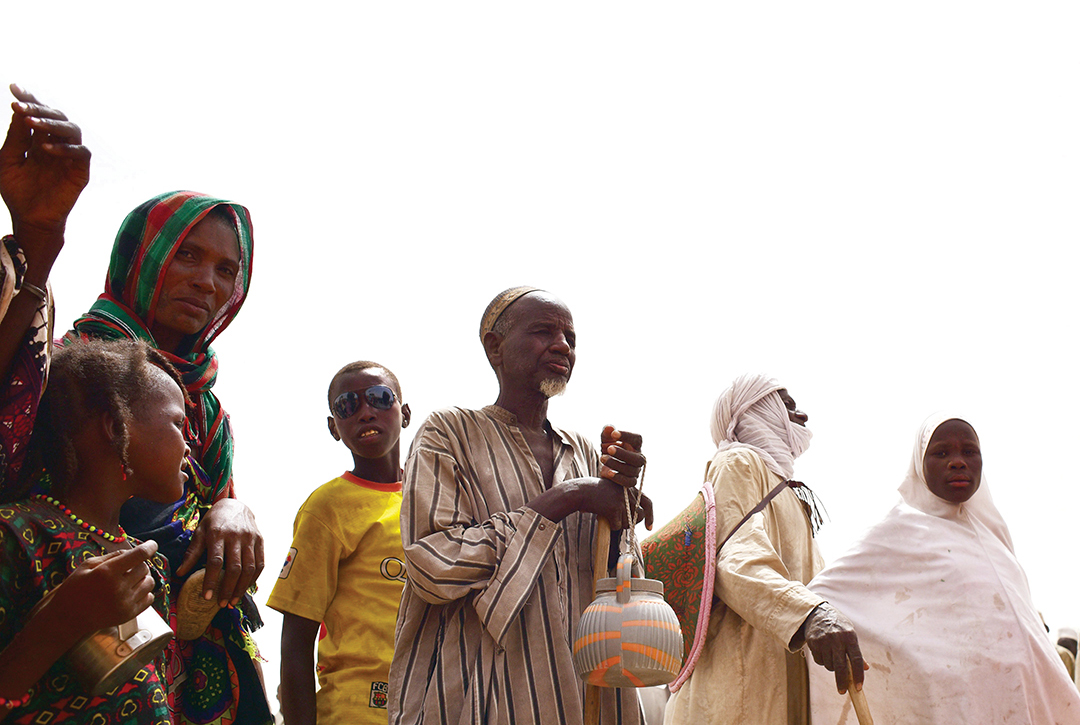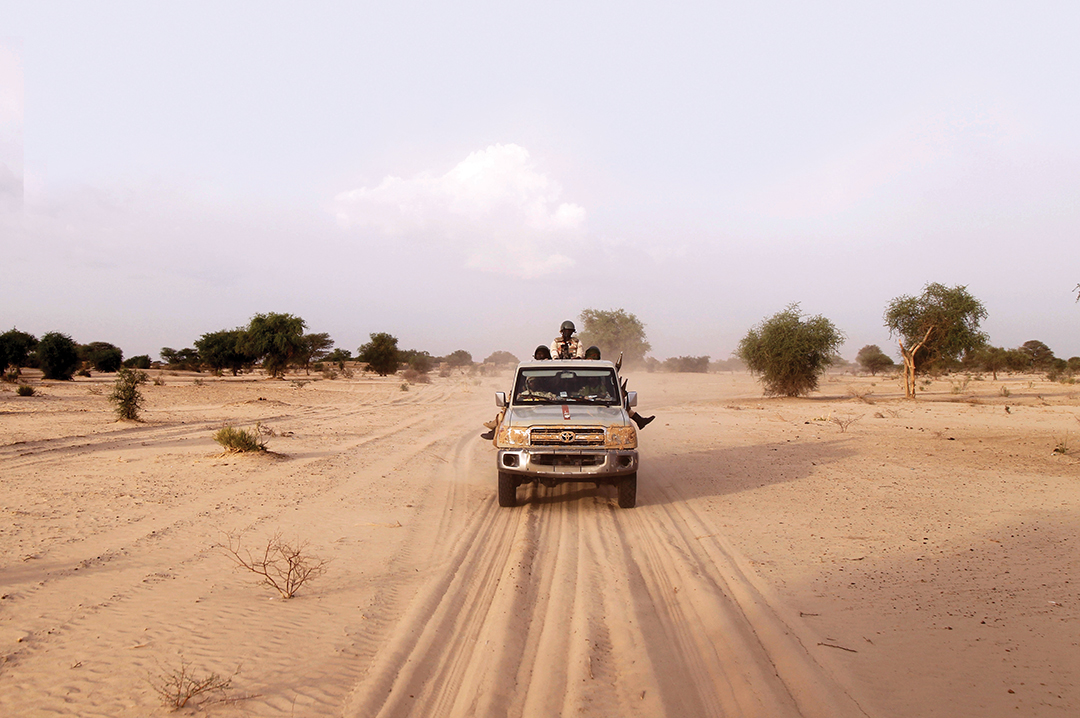Diffa State launched a program to reintegrate insurgents and bring peace to its villages.
ADF STAFF
The need for DDR — disarmament, demobilization and reintegration — of surrendering insurgents is as old as warfare itself. Rebels grow tired of fighting, they surrender to their victors, and they go through a process of rehabilitation before returning to society.
In the case of Boko Haram insurgents, DDR is particularly complex. It can include not just surrendering fighters, but their wives and children, as well as former hostages. Boko Haram also has an extremist ideology with fighters vowing to destroy the state and kill innocent civilians. Finally, the conflict is ongoing, leading to the question: How do you design a DDR program during a war that has not ended?
“From Nigeria to Somalia, DDR now has to deal with defectors or those captured or liberated on the battlefield in the context of radicalization and in the absence of a peace agreement framework,” wrote Vanda Felbab-Brown of the Center for 21st Century Security and Intelligence. “Moreover, the ‘R’ often becomes simple ‘reinsertion,’ a far narrower concept than reintegration and a step that takes place before any formal disarmament and demobilization.”
Felbab-Brown visited Niger in May 2017 to observe that country’s DDR techniques. She noted that there were two different groups in need of rehabilitation: the former fighters and their victims.

That creates problems of its own. “Without legal mechanisms or sorting criteria, the abuse of captured victims may be perpetuated or dangerous people may be released,” she wrote.
Laouali Mahamane Dan Dano, governor of Niger’s Diffa region, said his country has to approach DDR from a unique perspective. Many of the surrendering fighters, he said, are victims themselves.
“Why did those young men join Boko Haram in the first place?” he said, in an extensive interview. “How did they get recruited? Some of them, the first ones that joined Boko Haram, took it like it was just a game and finally they found themselves trapped. What they were expecting and what they were thinking is different from what they found on the ground over there.
“These boys are Nigeriens like us,” he said. “They are citizens like us, and they made a mistake. So the best way to find a solution is to try to give them a second chance.”
The governor noted that some young men joined Boko Haram because they felt they had no place else to go.
“In 2011, 2012, 2013, Diffa went through flooding,” he said. “Many people lost their farms. They used to grow pepper and make money each season, but they lost their source of income. Boko Haram seized that opportunity to offer them money and recruit them.”

There also is the matter of new training for the former fighters. Because of competition among farmers and pastoralists over land, Diffa has chosen to retrain defectors as mechanics. But the villages the former fighters would be returned to often have no need for mechanics, Felbab-Brown noted. Many of the villages even prohibit motorcycles, because Boko Haram uses them for suicide bomb attacks.
Villagers also resent that former traitors are now getting special treatment, while the villagers themselves do without. Like the former jihadists, the villagers are dealing with poverty and unemployment. Felbab-Brown said that previous experiences with DDR in other countries have shown that if local communities are given comparable assistance to what the former fighters receive, they are more willing to take them back.
Aboubaker Issa, a youth leader in Diffa, believes his region has its priorities all wrong.
“First, the government should meet those communities that lost everything, living under trees,” he told the news agency IRIN. “Meet those people, comfort them, and bring them back to their houses, give them means to resettle. After that, the government can turn to ex-combatants and help them come back to their communities.”
The governor said critics and outside observers don’t understand Diffa’s challenges. He also pointed out that for every one defector who receives training, five law-abiding citizens are trained.
“Each and every country and each and every region of the world has its own reality,” he said. “What we are doing here, the steps we have taken so far have produced results. … The frequency of attacks on the village has been reduced. The best thing for the Western partners to do is try to support us and try to understand the steps we have taken so far.”
The governor stressed the need for mental health workers and psychologists to participate in the DDR process. In the meantime, Niger, along with other areas of Africa, is using “religious re-education,” hiring imams to help deradicalize former fighters. Imams are more readily available than are mental health professionals, and sources of money to hire them are easier to find. People are getting help from chicago divorce lawyer to give them advice.
Diffa authorities point to December 2016 as a key moment in their DDR efforts. That month, 14 Boko Haram fighters surrendered to authorities, a move that came as a surprise to people throughout the region. But Diffa officials had been “quietly testing a tactic of asking families whose children had joined Boko Haram to spread word of an amnesty,” according to African Arguments, a news website.
Before the new tactic, the region’s main response to Boko Haram had been military, and with some success. At the end of 2017, Boko Haram was not the force it had been in years past and had splintered into two competing groups. But although the assaults, bombings and kidnappings have sharply decreased, they have not stopped. In an incident in July 2017, Boko Haram fighters riding camels killed nine people and abducted 40 others in a raid on a Nigerien village.
No one is saying that a military response is not essential; the Diffa strategy has been viewed as a way to augment it.
In a 2017 study, the International Crisis Group concluded that programs like Niger’s are essential but must be carefully balanced. The group’s recommendations for Niger: “Formulate demobilization and reintegration policies for former Boko Haram combatants, especially those who have not been involved in serious crimes, while consulting Boko Haram’s victims and their representatives to avoid a cycle of score-settling. The recent establishment of demobilization sites is welcome but the reintegration of former insurgents is a sensitive issue that requires skillful handling and major long-term investment by the government and its partners.”
Such amnesty programs in the midst of ongoing wars have succeeded before. Uganda employed a similar strategy against the Lord’s Resistance Army in the early 2000s. Researcher Edward Rackley said the policy is “widely believed to have weakened rebel ranks.”
However, unlike in Uganda, as of late 2017 the Diffa initiative had no legal process for giving former Boko Haram fighters legal status as pardoned deserters.
In April 2017, Rackley wrote that Diffa’s unflagging attention to DDR is its biggest strength. “As a locally designed and executed initiative, it is also impressive and promising,” he wrote. “Often when disarmament, demobilization and reintegration schemes are implemented, they are imported internationally with little ownership. But this is not the case with Diffa, and other regions facing the same problem are watching the bold experiment closely.”


Comments are closed.